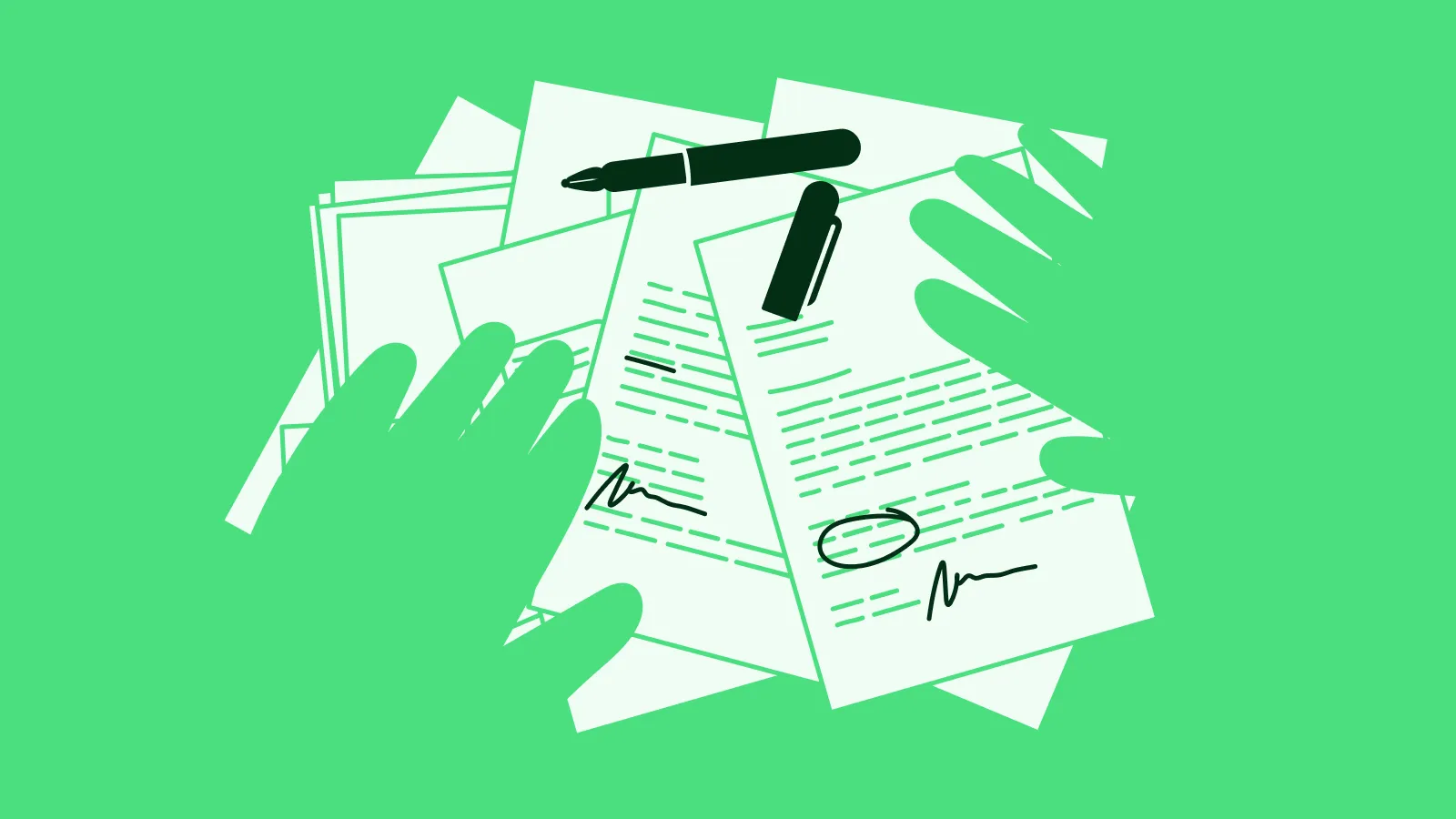What Credit Score Do You Need to Buy a House?
Unravelling the credit score myth to find what lenders truly look for when you apply for your mortgage.
Your home may be repossessed if you do not keep up repayments on your mortgage.
Exclusive broker partner to

Author: Michael Whitehead, Head of Content
Reviewer: Paul Coss, Haysto Co-Founder and Chief Customer Officer
Updated: Oct 06 2025 8 mins
Buying a house is one of the biggest moves you’ll ever make, and it’s natural to feel a bit of pressure about getting your finances right. At the heart of a successful mortgage application is your credit score. This little three-digit number can feel like a gatekeeper to homeownership, but it's not the only thing that matters.
Your credit score is essentially a financial report card that tells lenders how reliable you are as a borrower. It helps them decide if you're likely to keep up with your monthly mortgage repayments. If your score is healthy, you’ll typically have access to more competitive rates and a wider range of deals.
However, a common misconception is that there is a single, universal credit score that will instantly unlock the door to your new home. There isn't. Every lender has their own formula for deciding who gets approved. So, focusing instead on building a strong, all-around financial profile, and the mortgage you want will become much more achievable.
Quick Summary:
There's no one specific credit score you need to buy a house. Lenders use their own scoring systems, not just the one you see online.
Aim for 'Good'! Focus on hitting the 'Good' or 'Excellent' bracket across all three major UK credit agencies (Experian, Equifax, and TransUnion) to access the best interest rates.
The full picture matters. Your credit history is only part of the application. Lenders also focus heavily on your income, existing debt, and deposit size.
Adverse credit isn't a dead end. You can still get a mortgage with a poor credit score by working with specialist lenders who assess applicants on a case-by-case basis.
Time is your friend. The fastest way to boost your score is to register on the electoral roll and ensure all payments are on time. Plan for a 6 to 12-month clean-up period before applying.
What Credit Score Do You Need for a Mortgage?
The most direct and honest answer is: there is no single, required credit score for a mortgage. This is because the UK’s three main Credit Reference Agencies (CRAs)—Experian, Equifax, and TransUnion—all use different scoring systems and number ranges.
What Experian considers ‘Excellent,’ Equifax might call ‘Good.’ Lenders know this, and they don’t rely solely on one agency's rating. Instead of checking your score, mortgage lenders will run their own checks and give you a score based on their own criteria and risk appetite. This score is the one that really counts.
Your best bet is to aim for the ‘Good’ or ‘Excellent’ bracket across all three main CRAs. By doing this, you're confirming to any potential lender that your financial history is in great shape, which opens the door to the best mortgage rates.
How Do Lenders Decide if You Can Have a Mortgage?
Lenders are masters of looking at the big picture, and your credit score is just one piece of the puzzle. When you apply for a mortgage, they use their own underwriting to assess all areas of risk. This helps them determine not only if you’re a reliable borrower, but also how much you can comfortably afford to pay each month.
The process is generally split into two key areas:
Affordability
And
Credit history
Affordability is based on your income, outgoings, and existing debt. Lenders need proof that you could still afford your monthly payments even if interest rates rose or your life situation changed unexpectedly.
A general rule is that lenders will look to offer a mortgage loan of between 4.5 and 5 times your annual income. For example, if your yearly salary is £40,000, using an income multiple of between 4.5 and 5, you could potentially borrow between £180,000 and £200,000. This amount would then be combined with your deposit to calculate the full property value you can look at.
Lender Assessment Factor | What the Lender Checks |
|---|---|
Income & Stability | Salary, employment history, any bonuses/commission, or self-employed accounts to prove earnings can cover the repayments. |
Outgoings & Debt | Existing credit card balances, personal loans, car finance, childcare costs, and regular monthly subscriptions. |
Credit History | Any past issues, such as late payments, defaults, or County Court Judgments (CCJs), as recorded by the credit agencies. |
Loan-to-Value (LTV) | The size of your deposit compared to the property price. A larger deposit (lower loan-to-value, or LTV) indicates less risk. |
What Is a Good Credit Score for a Mortgage?
A good credit score indicates that you have a solid history of managing money responsibly. This means paying bills on time, keeping credit utilisation low, and being registered on the electoral roll. The higher your score, the more appealing you are to mainstream lenders, giving you access to their most competitive interest rates.
The best way to understand your position is to check your rating across all three major agencies. While the scores themselves aren't universal, the rating categories are a good indicator of where you stand.
Here is a guide to the score ranges used by the main UK credit agencies:
Credit Rating | Experian Score Range (0–999) | Equifax Score Range (0–700) | TransUnion Score Range (0–710) |
|---|---|---|---|
Excellent | 961–999 | 811-1000 | 628–710 |
Very Good | - | 671-810 | - |
Good | 881–960 | 531-670 | 604–627 |
Fair | 721–880 | 439-530 | 566–603 |
Poor | 561–720 | 0-438 | 551–565 |
Very Poor | 0–560 | - | 0–550 |
If your score falls into the ‘Good’, ‘Very Good’ (Equifax only) or ‘Excellent’ category, you are in a strong position. Most high-street lenders will be happy to consider your application, and you'll generally qualify for the lower interest rates they offer.
Can You Get a Mortgage with a Fair Credit Score?
Yes, it’s possible. A ‘Fair’ credit score simply means you might have a few minor bumps in your financial history, but nothing that will immediately lead to a rejection. This could be a late payment or two from a few years ago, or maybe just a short overall credit history.
Lenders will still consider all the other factors mentioned, such as your income and the size of your deposit. Even with a fair score, you’ll find plenty of mainstream lenders willing to offer you a mortgage. However, you may not be able to access the absolute lowest advertised rates, and some lenders may ask for a slightly larger deposit to offset any perceived risk.
The key to success here is using a mortgage broker who is familiar with the lending criteria of different lenders. They can match your ‘Fair’ score profile to a lender who views your application more favourably.
Why Pick Picnic?
With access to thousands of mortgage products, easy-to-use technology, and 100+ experts, our award-winning service is with you every step of the way.
Your home may be repossessed if you do not keep up repayments on your mortgage.
Can You Still Get a Mortgage with a Poor Credit Score?
Even with a 'Poor' credit score (also known as adverse credit), you can still secure the mortgage you need. Credit issues, like a default, a large CCJ, or even a past bankruptcy, might cause mainstream lenders to say no, but homeownership is far from out of reach.
The key here is choosing the right lender. Instead of high-street banks, consider specialist mortgage lenders. These providers don’t use the automated, ‘computer says no’ approach; instead, they review applications on a case-by-case basis, and look at the whole picture, including why the issue occurred, how long ago it happened, and whether the debt has been satisfied.
You should be prepared for slightly higher interest rates and a larger deposit (sometimes 15% to 30% of the property value, depending on the extent of the credit issue).
However, getting the mortgage approved means you can start building equity and steadily repair your credit score over time through consistent, on-time repayments.
How to Improve Your Credit Score
Improving your credit score is one of the most proactive steps you can take to make your mortgage journey easier. It takes time and commitment, so it’s wise to start this process as soon as you begin thinking about buying a house.
Here are the key steps to follow, which should be done at least six months before you plan to apply:
Check your report for errors: Download your report from all three major CRAs. Look for any outdated addresses, accounts that aren’t yours, or satisfied debts still marked as outstanding. Get any errors corrected immediately by contacting the lender or the credit agency.
Register on the electoral roll: This simple step is vital. Being registered to vote confirms your identity and address to lenders, which can help boost your credit score immediately.
Pay bills on time: This is the most crucial factor. Set up direct debits for all utility bills, credit cards, and loans so you never miss a payment. Lenders look for consistency and reliability.
Reduce your credit utilisation: Try to keep your credit card balances as low as possible, ideally below 25% of your total limit. A large balance, even if paid in full, can make lenders nervous.
Avoid new credit applications: Don’t apply for any new credit cards, loans, or even mobile phone contracts in the six to twelve months leading up to your mortgage application. Every 'hard search' on your file can temporarily lower your score.
If you have severe credit issues, such as an unsatisfied CCJ, paying it off will help improve your score much faster. In all cases, plan on giving yourself six to twelve months to see a significant improvement in your credit profile.
Can You Still Get a Mortgage with No Credit History?
You might assume that having no credit history (sometimes referred to as being ‘credit invisible’) is a positive thing. Unfortunately, it can make things just as tricky as having a poor credit score.
Lenders prefer applicants who can demonstrate their reliability as borrowers. If they have no data on you, they can’t easily assess the risk. This situation often affects younger first-time buyers or people who have recently moved to the UK.
If you have no credit history, your focus should be on building one responsibly:
Get a credit builder card: Use a credit card for small, manageable purchases, and pay off the balance in full every month. This proves you can manage credit without accumulating debt.
Take out a small loan: A very small loan paid back over six months can quickly build a positive repayment history.
Check bills: Ensure all household utility bills (gas, electric, water) are in your name, as some providers share payment data with the credit agencies.
The goal isn't to take on debt; it’s to demonstrate consistent, responsible financial behaviour to create a strong credit score for a mortgage.
How Can You Check Your Credit Score?
Checking your credit score is easy and, most importantly, free. By law, you can access your report without damaging your rating.
The best approach is to check your rating with at least two of the three main CRAs. If you use a service that compiles data from multiple agencies, like Checkmyfile, you get a more comprehensive picture of what different lenders will see.
Most of these services also offer free tools and suggestions to help you take action on any errors or areas that need improving. They will also notify you if a significant change is registered on your file, keeping you in control of your data.
Start Your Mortgage Journey with a Clear Plan
The truth is, while a good credit score helps, it’s not the only factor that will determine if you can secure a mortgage. What really matters is showing a lender a stable income, manageable debts, and a healthy approach to your finances. By focusing on the full picture—not just chasing a single score—you put yourself in the strongest possible position.
We know how daunting the mortgage process can feel, especially when worrying about credit reports and affordability checks. At Picnic, we make this part simple by checking the entire market for you, including specialist lenders who are happy to look beyond a tricky credit score. With clear, expert guidance, we can help you find the mortgage that fits your situation.
Ready to find out exactly what you can borrow and where your credit score puts you? All you need to do is make an enquiry, and one of our Mortgage Experts will be in touch to get started.
Related Pages
Porting Your Mortgage

The Picnic Guide To Buying a Home

How Conveyancing Works

How Stamp Duty Works

Speak to One of Our Experts
First or next move, remortgaging or investing - get clear advice from our award-winning experts to help you find the right mortgage.
Your home may be repossessed if you do not keep up repayments on your mortgage.